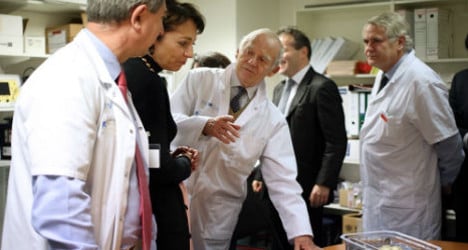A septuagenarian man who was fitted with the French biomedical firm Carmat's first artificial heart two and half months ago has died, a hospital statement said Monday.
"Seventy-five days after the implant of the first Carmat artificial heart bioprosthesis in a 76-year-old man with a terminal heart disease, the patient died on March 2nd, 2014," the Georges-Pompidou European Hospital said.
Artificial hearts have already been in use for many years as a temporary fix for patients with chronic heart problems.
The Carmat product aims to provide a longer-term solution to bridge the wait for a donor heart and enable hospitalized patients to return home and maybe even resume work.
The hospital statement said the causes of death "will not be known until after a thorough analysis of the abundant medical and technical data that has been recorded".
The artificial heart, a self-contained unit implanted in the patient's chest, uses soft "biomaterials" and an array of sensors to mimic the contractions of the heart.
The patient had received his artificial heart on December 18th, in a world first performed after the French government gave its green light to the operation in September.
The surgeons who carried out the ground-breaking operation and subsequently monitored the patient's progress were keen to "stress the significance of the initial findings drawn" from the experiment, the hospital's statement said.
They paid homage to the patient, who was "fully aware of what was at stake and – with his trust, courage and will – made a memorable contribution to the medical battle against a growing disease."
Nearly 100,000 people in Europe and the United States are in need of a heart transplant, according to Carmat.
A US rival to Carmat, an artificial heart called AbioCor, is authorized in the United States for patients with end-stage heart failure or life expectancy of less than 30 days, who are not eligible for a natural heart transplant and have no other viable treatment options.



 Please whitelist us to continue reading.
Please whitelist us to continue reading.
Member comments